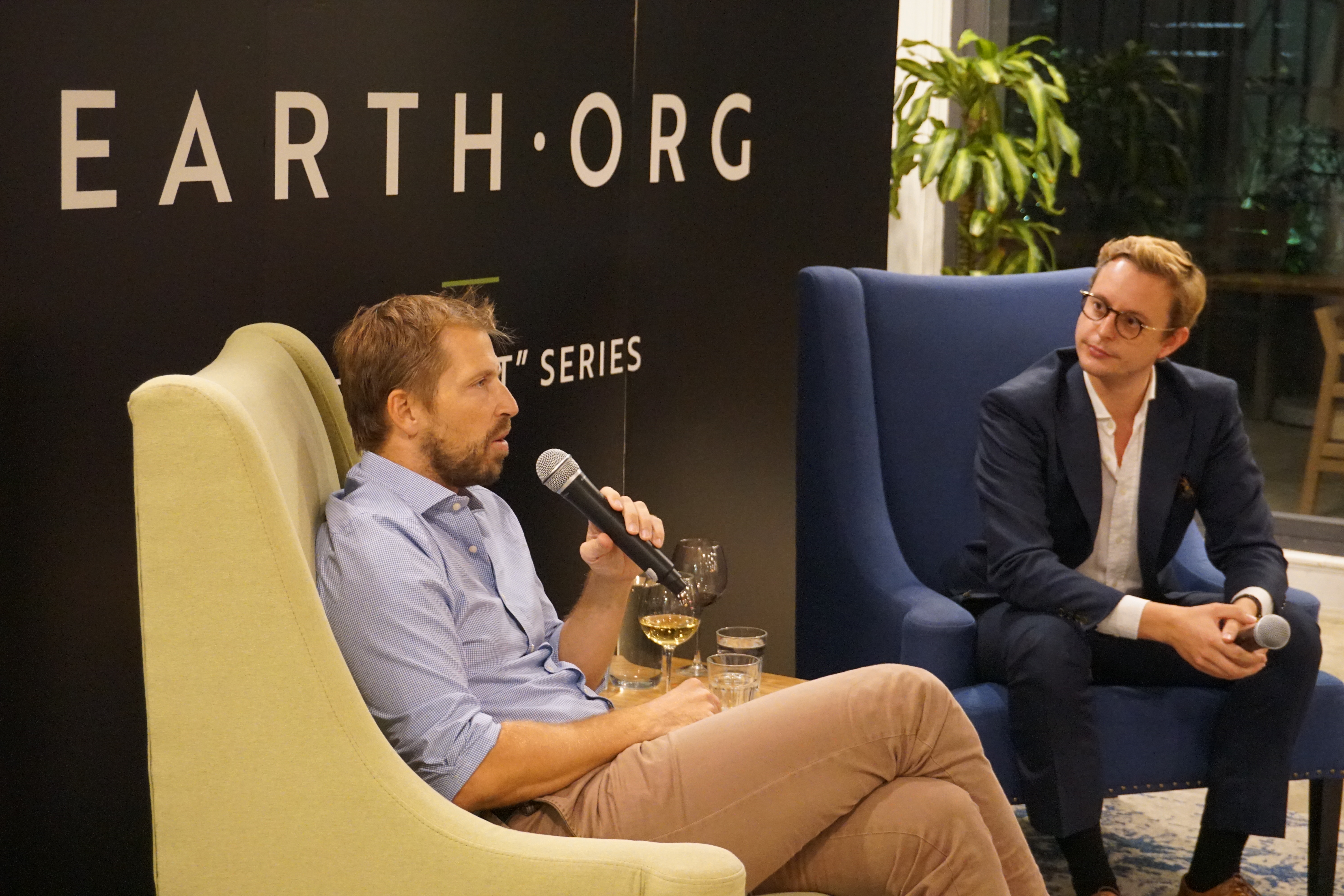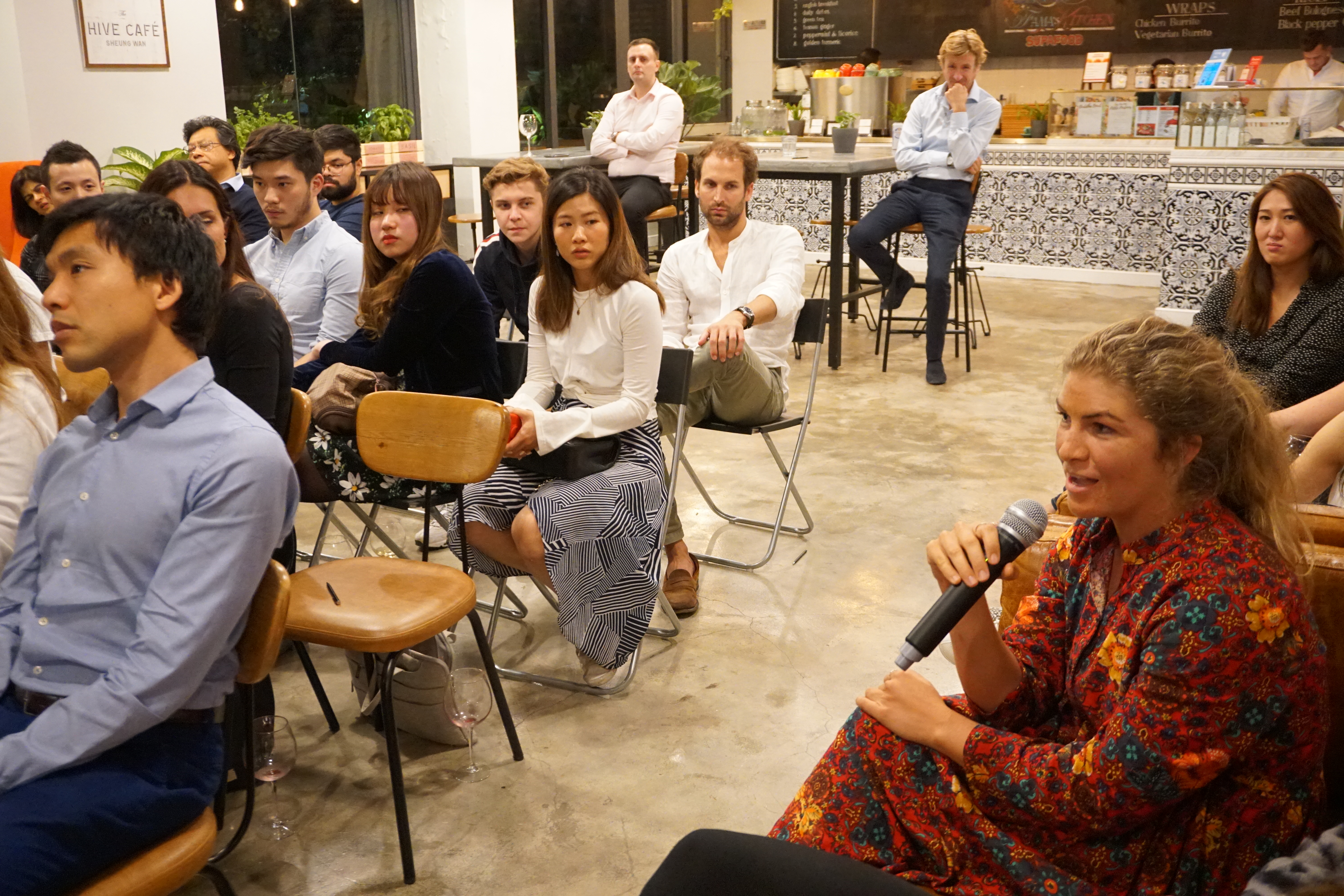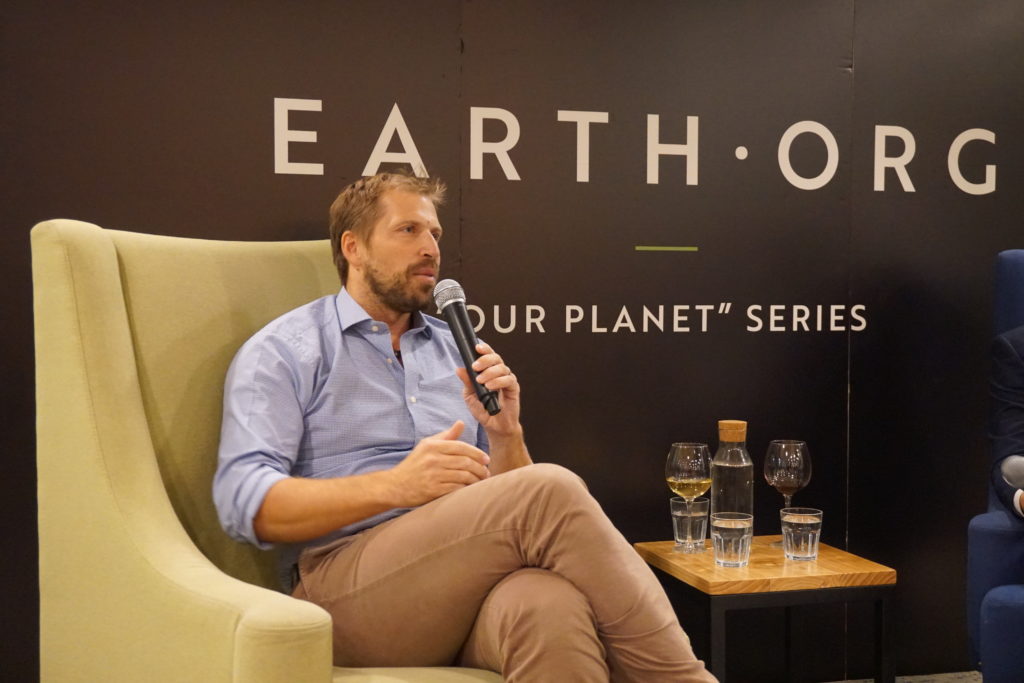As part of ‘Our Planet Series’, adventurer Paul Niel sat with Earth.Org for a fireside chat to discuss The Loop, creating sustainable habits in Hong Kong, and his desire to merge technology and exploration.
Paul Niel is an Austrian adventurer and investor based in Hong Kong. With a background in statistics, Paul worked at JPMorgan and Goldman Sachs before turning to exploring full-time.
Some notable achievements include conquering the Seven Summits; Paul reached the summit of both Mount Everest and Lhotse- two 8000m peaks and the world’s highest and fourth highest mountains- within 24 hours.
In 2017, Paul and his wife Esther Röling, embarked on their ‘Round the Island’ project, the focal point of Paul’s new film, The Loop.
—
Marco: Can you tell us about your latest film, The Loop?
Paul: The film was a spinoff of an idea that we had at our kitchen table. We moved to Hong Kong 8 years ago and one of the things that we love about the city is how multifaceted it is- it’s very densely populated, but a few minutes out, you can experience some incredible nature. There are very few places in the world like it. We’ve been entertaining a sport called coasteering- essentially the coastal equivalent of mountaineering.
My wife and I sat down and wondered if it was possible to climb the whole island in one loop. The idea was that we would walk, climb and swim along the coast until we came back to where we started. One thing that we quickly realised as we scouted out the coastline was how polluted it is, especially along stretches that are not open to the public. We thought that we could do more than just have fun; we could make this into a bigger project. We partnered with Hong Kong-based NGO Ocean Recovery Alliance and used their Global Alert app to record and map the trash that we came across; as well as the Open University of Hong Kong, to take water samples to study the pollution levels.
We recorded the journey in 2017 and then produced and bootstrapped it for 2 years, where we thought many times that the project would never be completed and that if there wasn’t a larger meaning behind it, we would’ve aborted it.
I should also add for the audience that Paul is an entrepreneur; he and his wife have launched many initiatives around Hong Kong. How do you choose your causes or subjects of interest and what process do you go through when choosing your next adventure?
I worked in the corporate world where my daily routine was dictated to me. When I left, I decided that I wanted to do things that I’m passionate about. I started off doing a lot of these mountain adventures which were just for me. I took a step back and wondered, “Maybe I’m able to have these adventures but have a bigger impact besides financial benefit?” This started with a project I did in India, where I drove a tuktuk through the country. I was invited to a presentation by an Indian NGO that works to get girls access to education and I wasn’t aware of how big this problem was. I thought we could combine this cause with the adventure, thus the Education Explorers initiative was born. We drove the tuktuk through India for 3 weeks and wherever we stopped (mostly involuntarily) we would visit schools, NGOs or government entities to show them evidence of the problem. This drive to have impactful adventures has launched past, and hopefully future endeavours.
You might also like: Oceans: Our Blue Challenge With Stan Shea

Could you give us more insight into the link between adventure and impact investments?
As an investor, you need to think of your goals and how best to maximise your return. When I look at innovative companies, I think a lot of entrepreneurs are adventurers in their own right.
What I’ve learnt from my travels and expeditions is that your planning can only go so far, which is the same for these innovative, game changing entrepreneurs. The skills I look for when I invest are adaptability and flexibility to be able to keep up with changing plans.
Audience questions
Can you elaborate more on how to combine adventure with helping people?
We thought that after we completed the Round the Island project that would be the end of it. However, a few weeks later, I got a call from some friends who were looking for new things to do and they thought it would be a good idea to look at our pollution maps so they could go and collect trash. That started a new thinking process for us. We thought that there could be a way to mobilise people in Hong Kong who want to combine their love of extreme sports with doing something good. Esther launched the Adventure Clean Up Challenge, a multifaceted sporting event that lets teams compete with each other for a month to pick up the most trash. The response was great and we’re thinking of organising another instalment next year.
What is your favourite place that you’ve been to and why?
In the summer, we went to one of the most remote islands in the world, the Marquesas Islands in French Polynesia. It’s one of the most unspoiled places on Earth and it was inspiring to see how people can live off the land. Having said that, Hong Kong has some magical spots as well, such as High West near The Peak, and Sai Kung.

What do you see as the biggest challenge in driving sustainable change to consumer behaviour in Hong Kong?
Firstly, convenience. I sometimes catch myself using single-use items and thinking that it’s not a big deal, however it’s a small piece of a much larger picture. Secondly, Hong Kong doesn’t place value in trash. There’s no reason why in a city where most of its trash ends up in landfills, that the government shouldn’t be billing us for our trash. Solutions are needed at a policy level; this journey has made me realise just how much waste we needlessly produce.
We can be a part of the solution in small ways, like refilling our bottles instead of just throwing them away.
We have seen how much rubbish is frequently left on Everest and how the mountaineering industry in general is a big polluter. Can you comment on extreme sports and pollution?
There is a new measure in Nepal where groups have to pay a deposit as a guarantee that they’ll bring all their trash back with them. If you fly out of Antarctica, there are some private operators that now demand that you take everything back with you. There is a problem, and there are some countries implementing policies to mitigate the environmental impact that sports can have.
The places that will suffer the most are those that have received an increasing number of tourists over the last decade and do not have any policies in place to mitigate environmental damage, such as Cambodia.
What’s next for you?
I have become more focused on merging my interest in technology with exploration. Over a year ago, I went on an expedition with a group to Mongolia to search for dinosaur fossils using drones fitted with imaging cameras to map the discovery sites. I have been using this technology to find other interesting things in Hong Kong, such as underwater ship wrecks.
I have discovered that the same technology we can use to map wrecks can also be used to find historic remnants of oyster reefs around Hong Kong, which were plentiful until they were dug out and destroyed. We are searching for these remnants to see if we can regrow these reefs as they serve as natural barriers against typhoon damage.

As an explorer, have you seen more historical remnants being uncovered due to global warming?
Absolutely. I was in the Alps when a big chunk of mountain detached. Mountaineering has become a lot more dangerous over the years because there are less rocks and less snow in the winter.
I was astounded at how close to the surface we found the fossils, but erosion has become so rampant that they were relatively easy to find.
Earth.Org is thankful to Paul Niel for taking the time to speak with us.

















